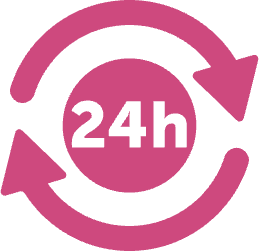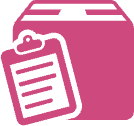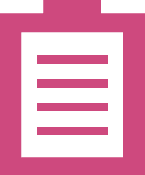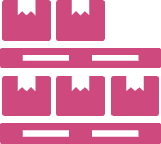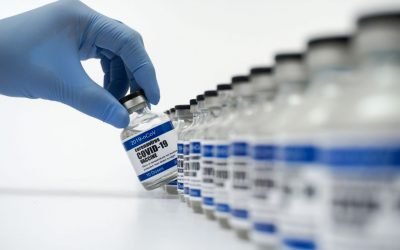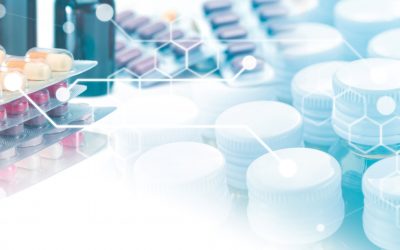Medicines and pharmaceutical products
There are 2 main types of applications in this space: inventory tracking and authentication. With 1.12 billion prescriptions dispensed in the community (2019) and a further 2.7 billion in the secondary care setting, the need for inventory tracking is crucial and often involves bar codes and vial counts, which leads to less frequent inventorying and mistakes.
Authenticating is also a growing need. Counterfeiting is an increasing problem in all markets, especially of high-cost drugs and the EMA/EU have tried to legislate to prevent it through a 2-dimensional barcode and anti-tamper packaging. These measures are regarded as time limited for their effectiveness and RFID is seen as a potential next generation in compliance against falsified medicines. In the future every prescription medicine and some over-the-counter medicines may have an RFID tag incorporated into it!
People tracking – Staff and patients and Security
Through active and passive RFID tags, the technology has the scope of carrying patients records on their wrists to tracking their movements through the healthcare setting. This can provide vital information for infection control for instance. If a patient contracts a healthcare associated infection, it has a direct impact on their length of stay, their future health outcomes and their overall length of life. These inevitably have profound consequences on the budget of the hospital. Then let’s imagine the hospital uses an aminoglycoside to tackle the infection and the patient suffers a side effect of ototoxicity and has imbalance issues for the remainder of their life; sues the trust and wins (on average) £750,000. The link may sound tenuous, but it is more common than you would imagine. On average 2 cases of successful litigation per trust per year. That is a staggering amount!
Understanding the movement of your staff throughout the hospital is also integral to reducing healthcare associated infection risk. You can also track their use of decontamination facilities between patients to further minimise risk and be able to provide evidence that all protocols have been followed.
Another application is security, where staff have to tap into areas and rooms of the hospital setting using their badge with RFID technology. This provides additional security for patients, medicines and equipment and limits the risk of misuse or theft.
Multi-use equipment
Surgical equipment such as scalpels, scissors, clamps and retractors are re-used after sterilisation and autoclaving. These metal items are needed daily in operating theatres in every trust. A full oversight of where these are in the process of use, sterilisation and re-use ensures steady and distributed use across all items. It is also worth noting that certain equipment requires different autoclave environments for sterilisation. RFID would allow you to check that the correct protocols have been followed and also track the usage history of an item and ensure you remove older pieces of equipment from circulation before they fail.
Single use equipment
Inventory tracking of single use items such as bandages, gloves, aprons, gauze, specimen vials provide the correct amount of stock in the right places across the healthcare system. These items are relatively low cost and so RFID-inlays are a great, cost-effective solution to inventory management of these items. In the wake of a global pandemic and looking to the future of improved infection control protocols, the need for these single use items is high.
Some healthcare settings also like to have oversight of which staff/departments are accessing these single use items. RFID tags integrated into staff badges allows you to have greater oversight of these items and limit waste or theft.
Non-moveable equipment
Larger items like beds and portable diagnostic machines are high value items that you will want to track around your facility due to the high cost to replace or repair them.
Utilising RFID allows you to track these items and their use around the healthcare setting and pinpoint damage/misuse and limit these. You can better manage your clinical need for these items and make the patient experience smoother.
Portable equipment
Wheelchairs and crutches are hospital assets that see the greatest levels of loss and misuse. Only 1/5 of these assets are returned or reused. In other words, the NHS spends £3m every year on replacing 80% of their crutches and £7.6m on wheelchairs a year. These are easy items to track around the hospital setting and with the use of RFID tags, we could have insights into their use and management.
Laundry
Similar to the surgical tool application, the main two objectives of using RFID here is to keep inventory and ensure cleanliness.
Bedding, towels, gowns and uniforms all require cleaning and disinfecting between patients. RFID ensures these processes are followed and gives you a record of how many wash cycles each item has been through, allowing you to renew stock pre-emptively and not have old, tired items in service.
It is also important to be able to treat items from more infectious patients in a different sterilisation pathway, and RFID would allow you to track this more easily and record the route the items have taken to be sterilised.
Watch out for up and coming blog posts that will explore each of these themes in greater detail. I will examine the potential for technology vendors, the opinion of key people in the NHS today and a vision of the future of these solutions!


